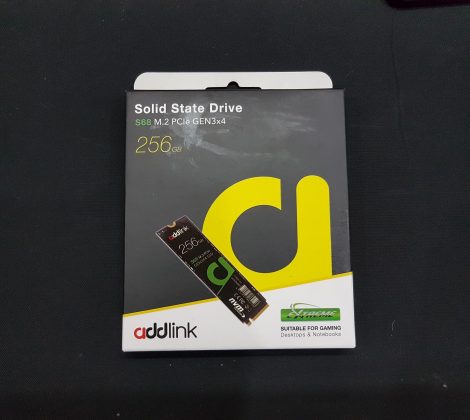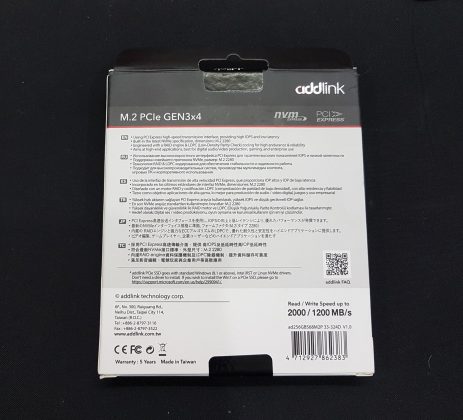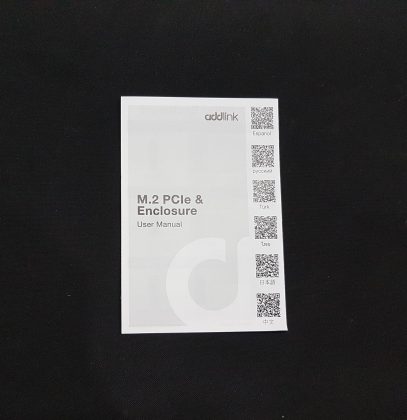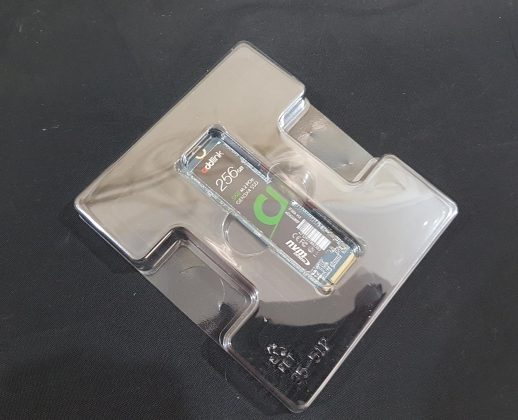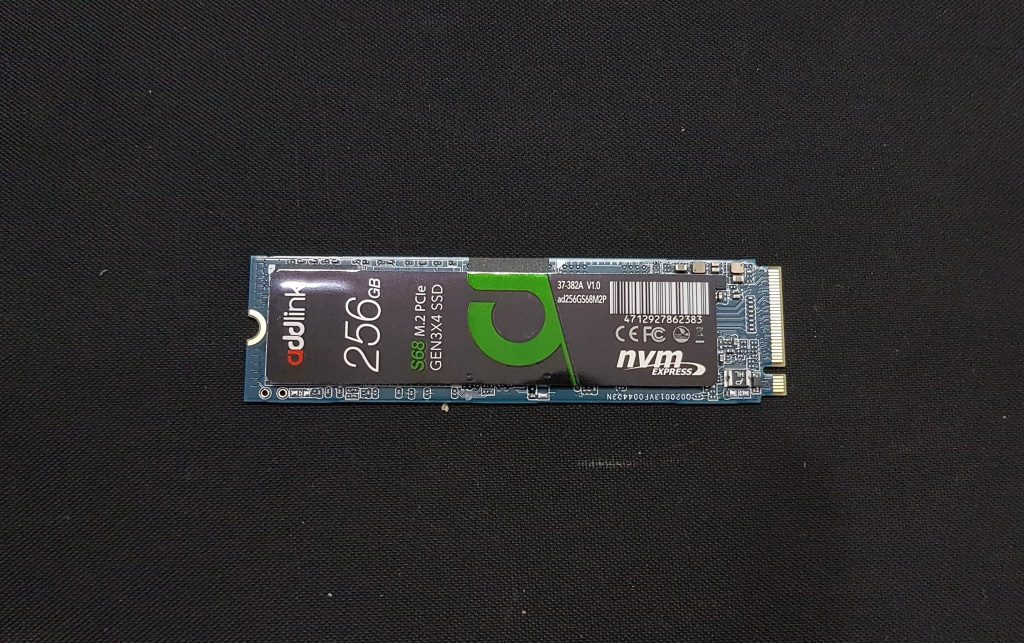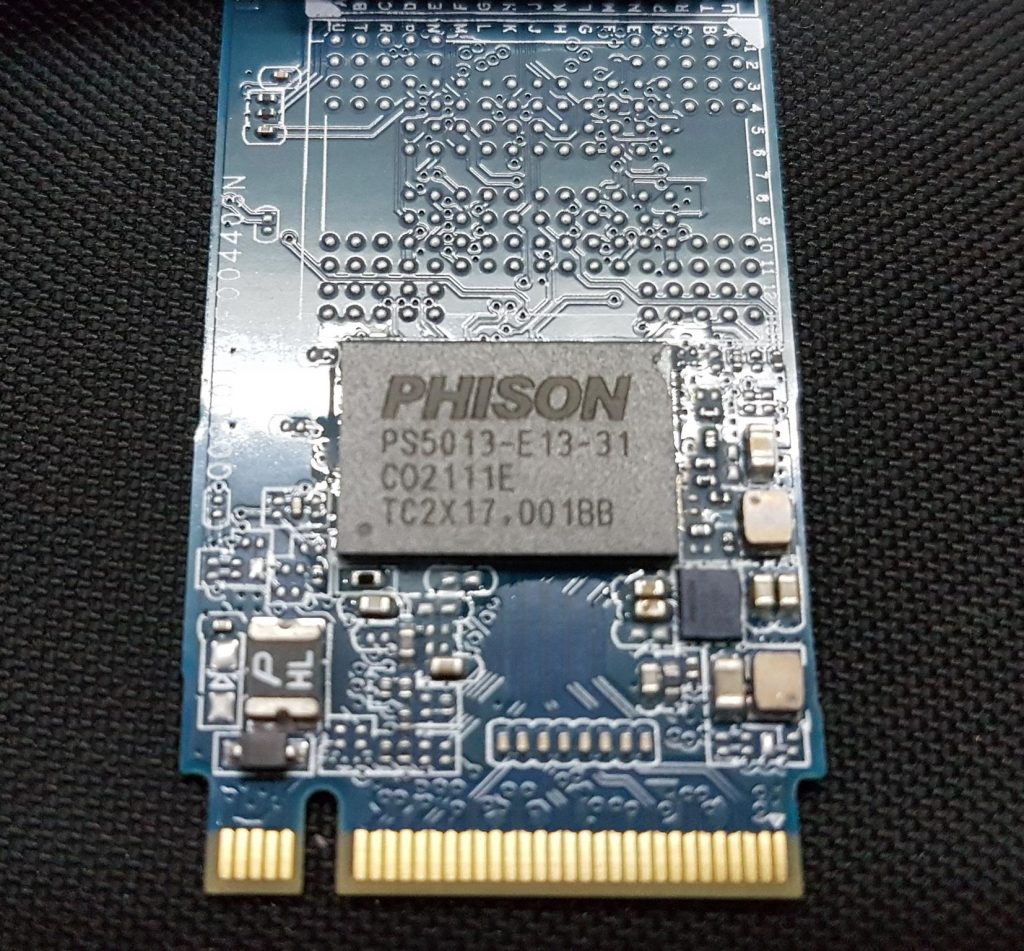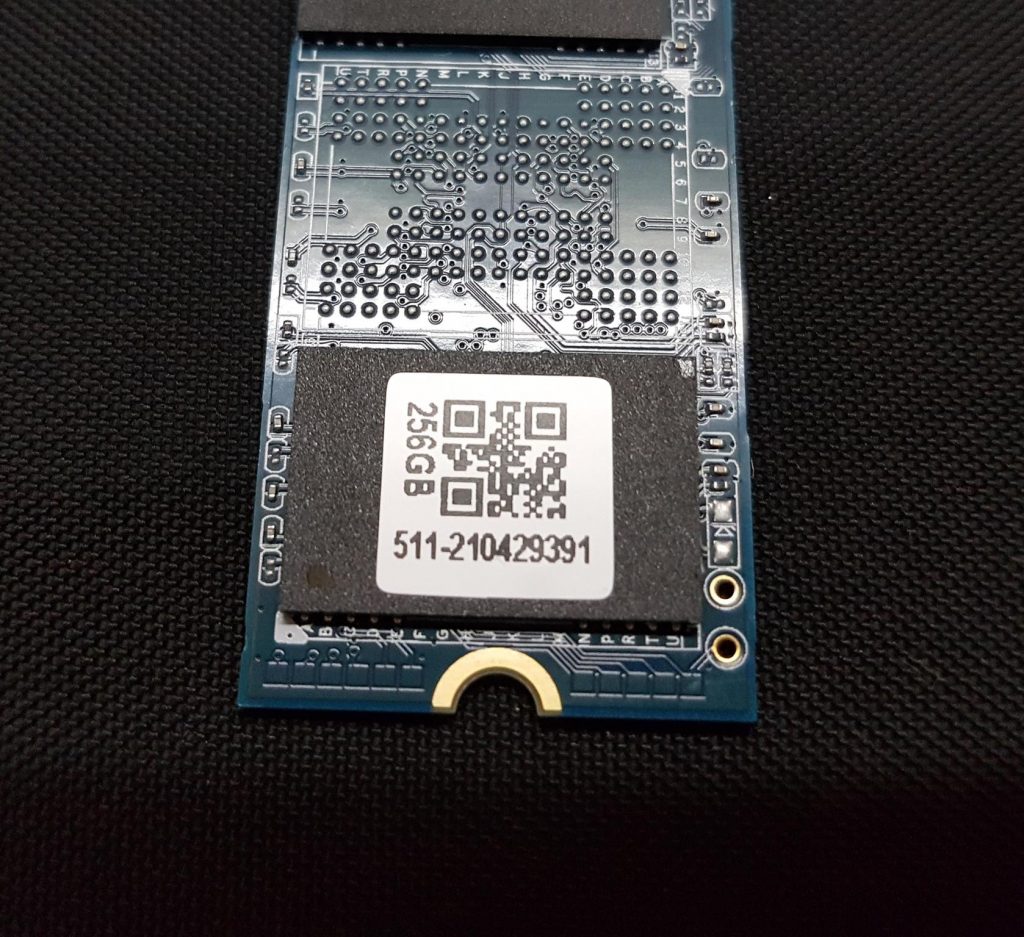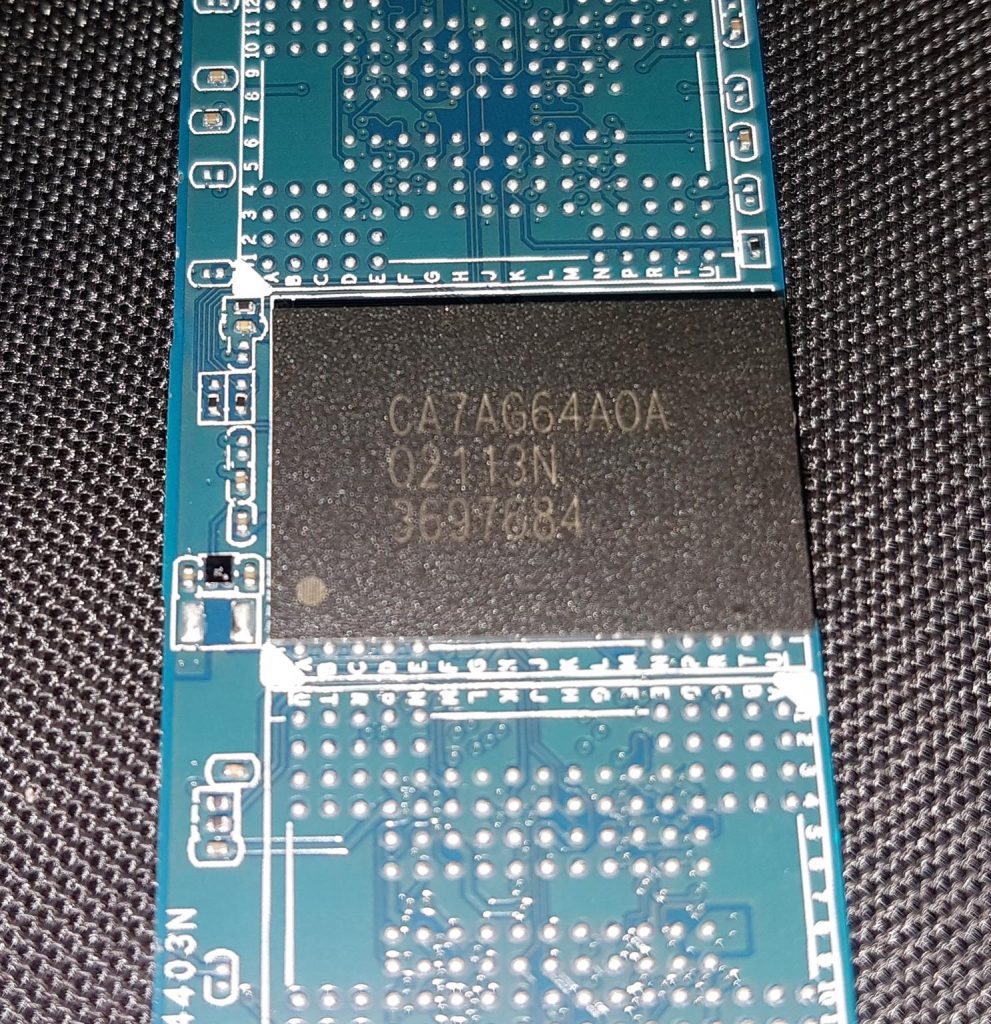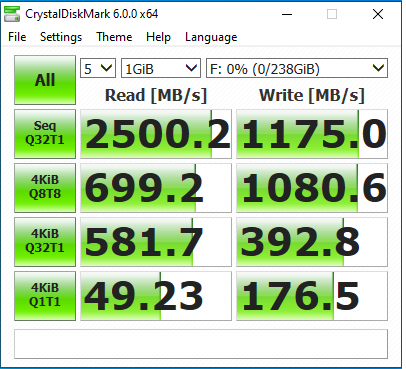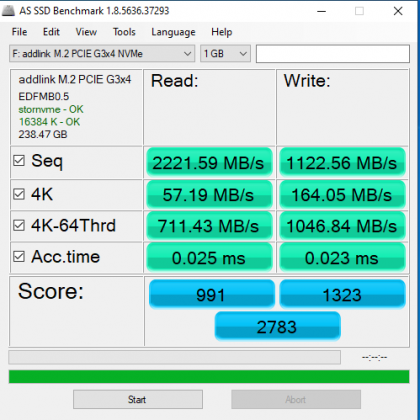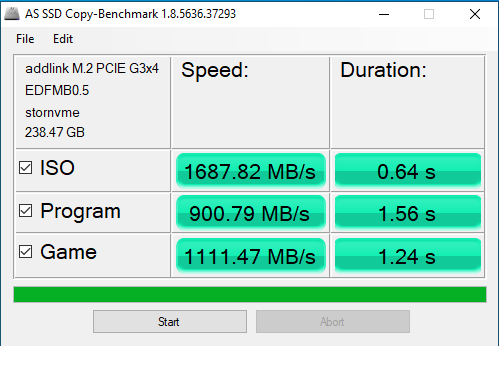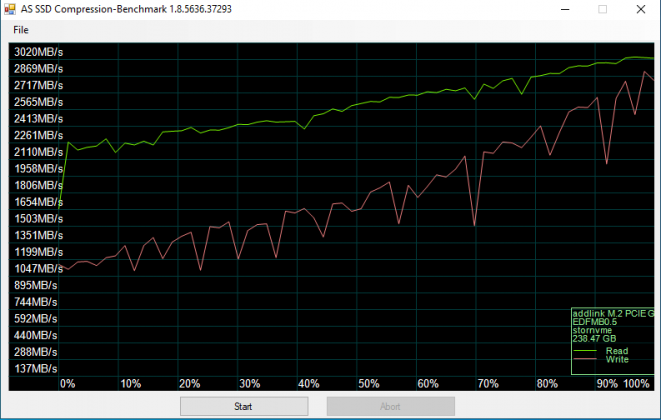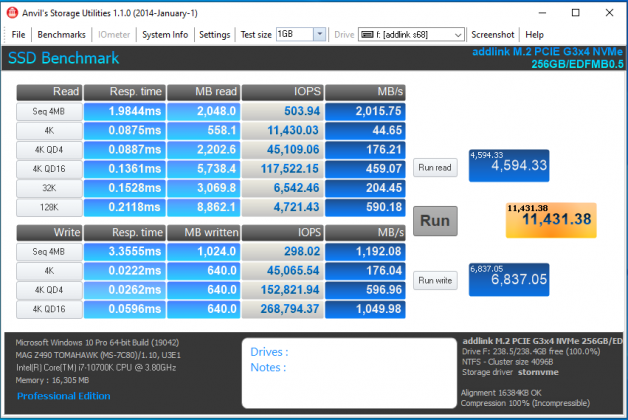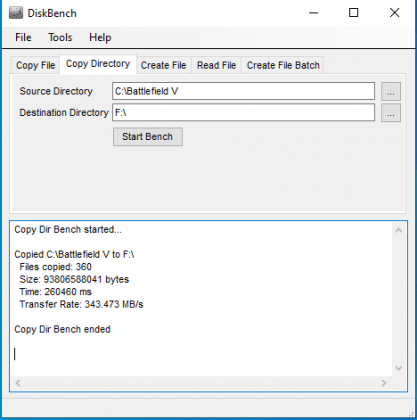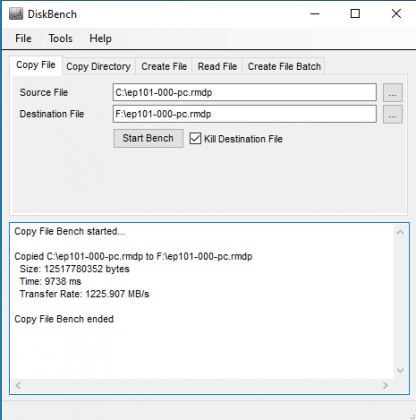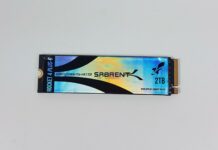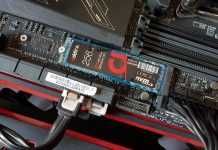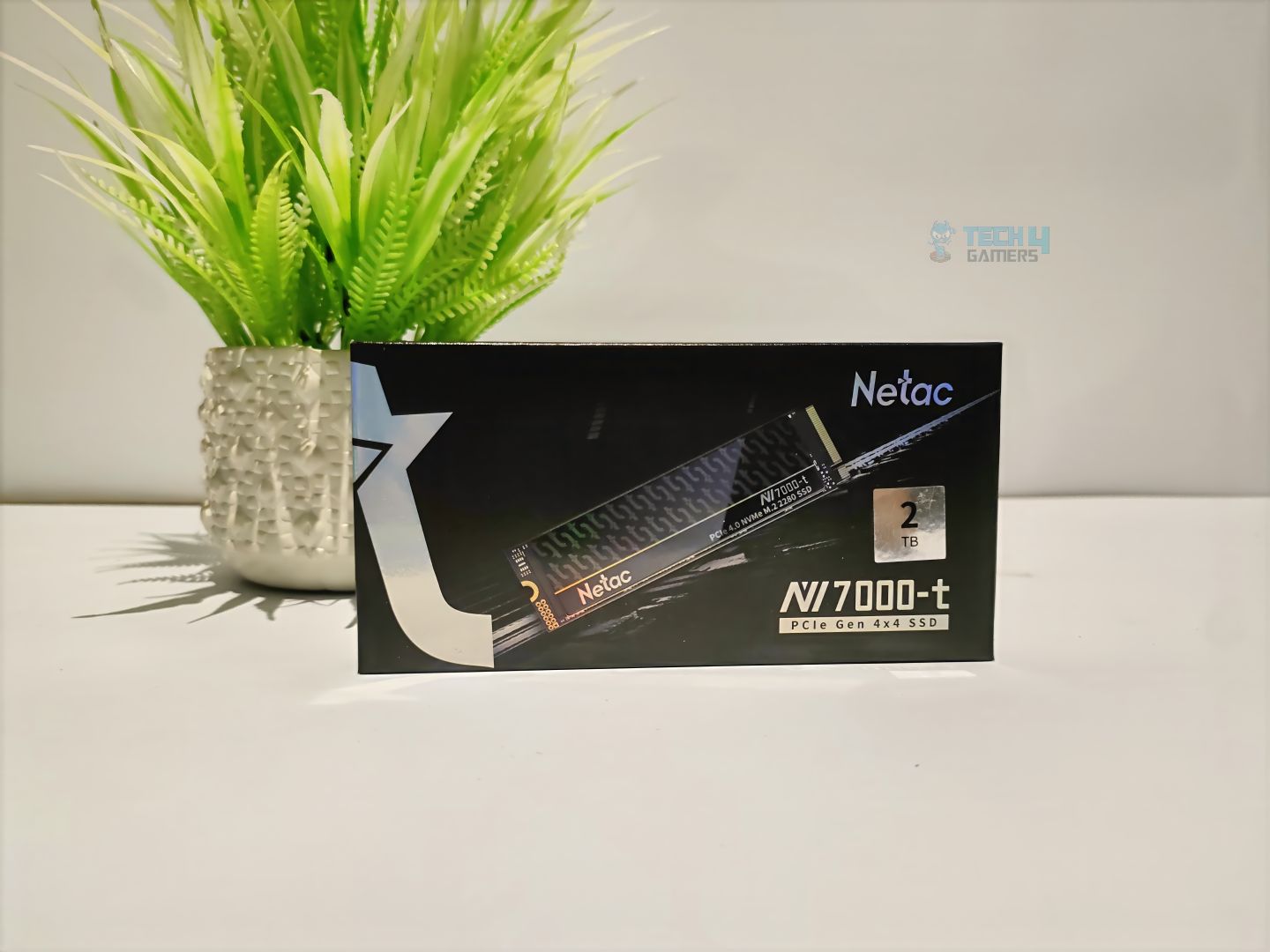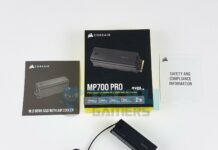Goes Easy On The Pockets!
Review Summary
The Addlink S68 series presents a budget-friendly M.2 NVMe SSD option, ranging from 256GB to 1TB. It caters to budget-conscious consumers and gamers seeking competitive read and write speeds without a DRAM cache, utilizing the PC’s RAM for enhanced performance. The single-sided PCB layout, DRAM-less design, and 3D TLC NAND contribute to its cost-effectiveness.
Hours Tested: 4
Overall
-
Features - 7/10
7/10
-
Performance - 7/10
7/10
-
Value - 9/10
9/10
-
Design - 8/10
8/10
Pros
- A budget-friendly option for consumers and gamers.
- Compact form factor and lightweight design.
- Competitive read and write speeds without a DRAM cache.
- Utilizes PC’s RAM as a cache for enhanced speed.
- Single-sided PCB layout.
Cons
- Not suitable for users with high-end SSD performance requirements.
- Maximum capacity limited to 1TB.
- DRAM-less design may not suit all users.
Introducing the addlink S68 series – available in 256GB, 512GB, and 1TB sizes. These M.2 NVMe SSDs with PCIe Gen 3.0 x4 interface boast cost-effectiveness through 3D TLC NAND technology. Compact at 80x22x3.5mm and 8.2g, the S70 256GB model is perfect for consumer use. A 2280 form factor achieves up to 2000 MB/s sequential read speed and 1200 MB/s sequential write speed. There is no DRAM cache – it cleverly utilizes your PC’s RAM as a cache. Let’s dive into the testing.
- Why you can trust Tech4Gamers: We understand the importance of making informed decisions. That’s why our team spends significant time testing every product we review. Find out more about how we test.
Key Takeaways
- The addlink S68 series is a budget-friendly M.2 NVMe SSD with PCIe Gen 3.0 x4 interface, featuring 3D TLC NAND technology, available in 256GB, 512GB, and 1TB sizes.
- It is ideal for budget-conscious consumers and gamers seeking cost-effective SSD solutions with competitive read and write speeds, utilizing the PC’s RAM as a cache.
- It is not suitable for users seeking high-end SSDs with DRAM cache, as the addlink S68 series opts for a DRAM-less design to maintain affordability.
Take a look at the specifications first.
| Specifications | Details |
|---|---|
| Capacity | 256GB, 512GB, 1TB |
| NAND Flash | 3D TLC |
| Dimensions | 80(L)x22(W)x3.5(Max.H) mm, 8.2g |
| Interface | NVMe GEN3x4 1.3 |
| Form Factor | M.2 2280 |
| Seq. Read/Write (MB/s) | 256GB: 2000/1200, 512GB: 2100/1700, 1TB: 2100/1700* |
| Operating Temp. | 0°C ~ 70°C |
| Storage Temp. | -40°C ~ 85°C |
| MTBF | 1.5 Million Hours |
| Warranty Period | 5 Years |
| Support Functions | End-to-end data path protection, Thermal throttling, SmartZIP, SmartRefresh, Drive log, Support HMB(Host Memory Buffer), Support TCG OPAL3, TCG Pyrite |
| Operating System | Microsoft Windows 10, or later |
Packaging and Unboxing
The SSD is shipped inside a paperboard box.
Design
The addlink S68 256GB M.2 NVMe PCIe SSD has a compact 2280 M.2 form factor, making it compatible with most modern motherboards’ M.2 slots. Designed for gaming and hardware enthusiasts, it delivers high performance and is available in capacities up to 1TB, offering a competitive edge to gamers.
The addlink S68 utilizes 3D TLC NAND, addressing the challenges of planar NAND by stacking memory cells vertically. This technology enhances performance and endurance, balancing speed and cost. The SSD’s dimensions are 80x22x3.5mm, weighing 8.2g, without a dedicated driver on Windows 8.1 and 10. The PHISON PS5013-E13-31 controller supports PCIe Gen 3×4, complying with NVMe 1.3 standards, and employs a 32-bit microcontroller with native support for 3D TLC and QLC NAND flash. The SSD features 2x 128GB chips, totalling 256GB capacity, and comes with a 5-year warranty, operating between 0°C to 70°C.
Despite slightly reducing SSD prices over time, the challenge lies in the increasing cost of solutions with higher storage capacities. The price per GB still favours 3.5” HDDs over SSDs, especially PCIe SSDs, which are more expensive. Factors like the type of flash memory (SLC, MLC, TLC, QLC) further complicate the pricing, each with pros and cons regarding endurance and performance.
Speaking of features, the Addlink S68 256GB M.2 NVMe PCIe SSD is capable of:
- End-to-end Data Path Protection
- Thermal throttling SMART-ZIP
- SMART Refresh
- DriveLog
- HBM (Host Memory Buffer)
- TCG OPAL3
- TCG Pyrite
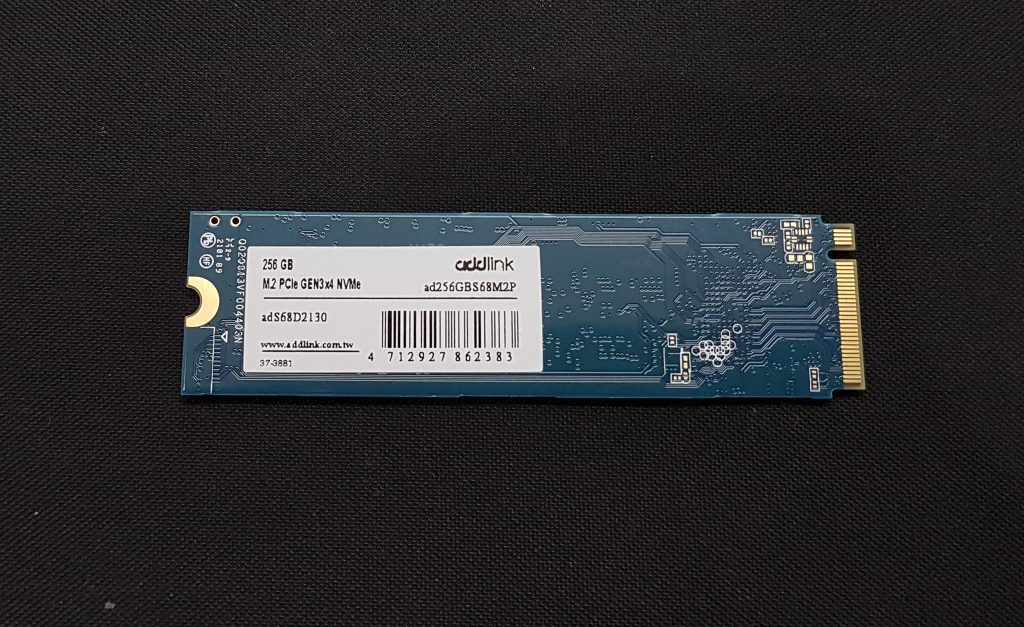
Testing
We have tested this drive on the Intel Z490 platform. The test bench setup is as follows:
- Intel Core i7 10700k
- MSI MAG Z490 TOMAHAWK
- T-Force NIGHTHAWK RGB 16GB DDR4
- ASUS ROG RYUO 240 CLC
- Addlink S70 256GB NVMe SSD [OS Drive]
- Nvidia GeForce GTX 1080 FE
- be quiet! Straight Power 11 850W PSU
To test the drive’s read and write speeds, we have used the following software running on Microsoft Windows 10 x64:
- AS SSD 1.8.5636.37293
- ATTO Disk Benchmark 3.05
- CrystalDiskMark 6
- Anvil Pro Storage Utilities 1.1.0
- DiskBench
Let’s take a look at the results.
Should You Buy It?
Following an in-depth analysis of Addlink S68, my judgment is:
Buy It If
✅ You’re a Budget-Conscious Consumer or Gamer: If you are on a budget and need reliable SSD performance for gaming or general use, the addlink S68 series could be a cost-effective M.2 NVMe SSD option.
✅ You Prioritize Compact Form Factor Enthusiast: If you prioritize a compact form factor and lightweight design, especially in scenarios where space constraints are a concern or when building a compact gaming rig.
✅ You Value Competitive Read and Write Speeds without DRAM Cache: If you value competitive read and write speeds and don’t necessarily require a DRAM cache, the addlink S68 series cleverly utilizes your PC’s RAM as a cache for enhanced speed.
Don’t Buy It If
❌ You Have High-End SSD Performance Requirements: If you require a high-end SSD with a DRAM cache for maximum performance, especially if you are a power user or professional with demanding data handling needs.
❌ Your Storage Needs Exceed 1TB: If your storage needs exceed the maximum capacity of 1TB offered by the Addlink S68 series, you may need to explore higher-capacity options.
❌ You’re Uncomfortable with DRAM-Less Design Trade-Off: If you are not comfortable with the trade-off of a DRAM-less design for affordability, and you prioritize having a DRAM cache in your SSD for specific use cases or peace of mind.
Final Words
Addlink’s S68 series offers budget-friendly SSDs ranging from 256GB to 1TB. The single-sided PCB layout, DRAM-less design, and use of 3D TLC NAND contribute to its cost-effective nature. A PHISON PS5013-E13-31 controller achieves speeds of up to 2000MB/s read, and 1200MB/s write. The SSD utilizes HBM (Host Memory Buffer), RAID, and LDPC coding for data security. It has a 1.5 Million hours MTBF, a 5-year warranty, and is targeted at gamers. The SSD performed well in tests, exceeding rated sequential read speeds and maintaining satisfactory temperatures under load.
Recent Updates
- February 25, 2024: A few text changes to improve readability. Added image galleries.
Thank you! Please share your positive feedback. 🔋
How could we improve this post? Please Help us. 😔
[Hardware Reviewer & Editor]
Meet Nauman Siddique, a highly experienced computer science graduate with more than 15 years of knowledge in technology. Nauman is an expert in the field known for his deep understanding of computer hardware.
As a tech tester, insightful reviewer, and skilled hardware editor, Nauman carefully breaks down important parts like motherboards, graphics cards, processors, PC cases, CPU coolers, and more.
- 15+ years of PC Building Experience
- 10+ years of first-hand knowledge of technology
- 7+ years of doing in-depth testing of PC Hardware
- A motivated individual with a keen interest in tech testing from multiple angles.
- I majored in Computer Science with a Masters in Marketing
- Previously worked at eXputer, EnosTech, and Appuals.
- Completed Course in Computer Systems Specialization From Illinois Tech


 Threads
Threads
